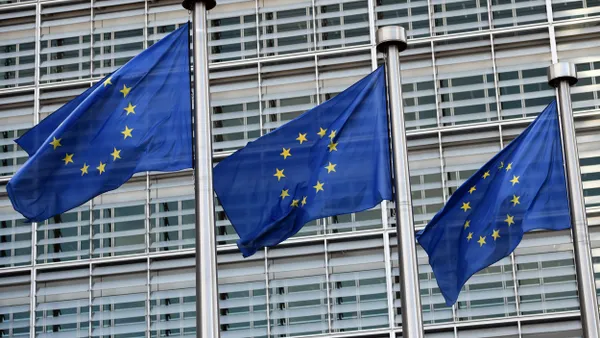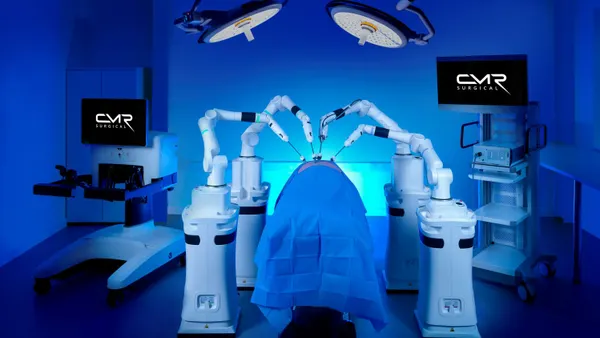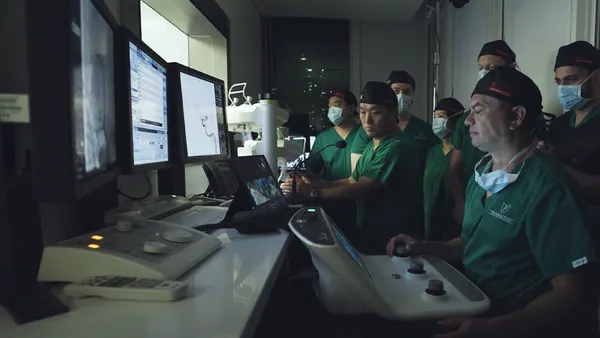UPDATE: Aug. 15, 2018: The list price for Auvi-Q was updated.
Dive Brief:
-
Kaléo is trying to capitalize on intermittent constraints in the supply of EpiPen by promoting its rival epinephrine autoinjectors as the back-to-school season gets underway.
-
Manufacturing delays at a Pfizer-owned plant are affecting the supply of Mylan’s EpiPen, prompting Kaléo to issue a statement highlighting that its rival product is available. It comes as the parents of children with allergies scramble to source epinephrine autoinjectors in time for the start of the school.
-
Kaléo's product, Auvi-Q, is listed at a wholesale acquisition cost (WAC) of $4,900, according to Mark Herzog, vice president of corporate affairs at Kaléo. That list price is significantly higher than EpiPen's, but the company is plugging the product's cash price of $360, or $0 for families with incomes of less than $100,000.
Dive Insight:
The market for epinephrine autoinjectors has been through a tumultuous few years. In 2015, Sanofi recalled its product amid reports of inaccurate dosage delivery, leaving the market free for Mylan to monopolize.
From 2015 to 2016, Mylan increased the EpiPen price by one-third, bringing the total rise since 2009 up to almost 500%. The price hikes turned EpiPen into a blockbuster drug for Mylan but also led to a consumer backlash and a congressional hearing where CEO Heather Bresch came under fire for EpiPen's pricing.
Mylan has since introduced an authorized generic of its own EpiPen at half the price, contributing to the cannibalization of the franchise. Sales fell by $655 million last year as a result of the introduction of the authorized generic, higher government rebates and increased competition. The situation went from bad to worse in May when the FDA put EpiPen on its shortage list amid manufacturing delays.
Kaléo thinks it can profit from Mylan’s woes while ensuring parents can get epinephrine autoinjectors for their children in time for their return to school after the summer break. The company statement noted that its Auvi-Q “is not affected by the manufacturing delays reported to the FDA by other epinephrine auto-injector manufacturers.”
Mylan’s difficulties give Kaléo a chance to regain the trust of consumers after its own supply issues.
Kaléo, then known as Intelliject, licensed Auvi-Q to Sanofi in 2009. Sanofi brought Auvi-Q to market in 2013 but struggled to take market share from EpiPen. In 2015, the peak of Auvi-Q use, EpiPen was prescribed 10 times more than its rival. The situation worsened later that year when Sanofi recalled Auvi-Q batches after receiving 26 reports of device malfunctions. Sanofi returned the rights to Kaléo in 2016.
Kaléo has since worked to fix the problems that caused the recall, leading to the reintroduction of Auvi-Q last year. Now, with Mylan on the ropes, Kaléo thinks Auvi-Q can finally carve out a significant piece of the market for epinephrine autoinjectors.











